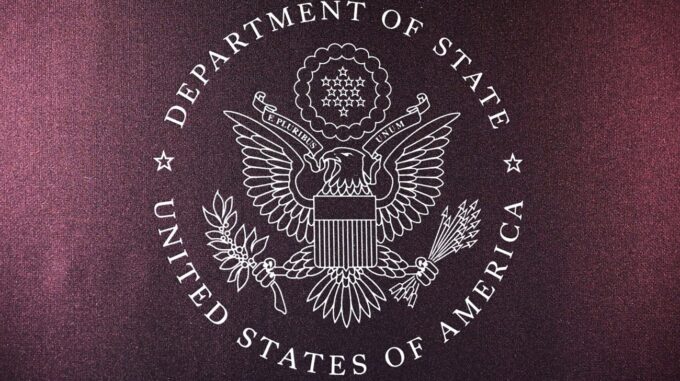The United States has expanded its diplomatic and economic campaign against Iran’s and China’s nuclear and missile programs by imposing a new round of sanctions on several companies and individuals from these countries

This decision specifically relates to suspicious supplies of technologies and components that could be used to develop ballistic missiles — a key element of regional and global security. According to information published by the U.S. Department of State, Washington has officially imposed restrictions on six companies and the same number of individuals from Iran and China, who are alleged to have supported Iran’s ballistic missile development program. The main reason for the sanctions is the existence of serious suspicions regarding illegal supply of components necessary for the production of missile fuel used in ballistic systems, including those created by the Iranian Revolutionary Guard Corps (IRGC). The source quotes: "The United States remains steadfast in its efforts to stop support for Iran’s missile program. We will continue to hold accountable all illegal activities, including the procurement of critical components for missile systems." This marks another signal of the intensification of the American "maximum pressure" policy aimed at deterring Iran from developing long-range missiles capable of threatening not only the region but also global security. Washington asserts that these companies and individuals are actively involved in supplying key materials for the production of missile fuel used in ballistic missiles developed by Iran’s military authorities. According to official sources, these sanctions are part of a broader strategic effort to limit Iran's ability to advance its strategic arsenals and to evade international restrictions. Diplomatic tensions surrounding Tehran’s nuclear program have intensified after countries participated in indirect negotiations initiated by Oman, aiming to find a compromise regarding Iran’s semi-legal nuclear activities. Representatives of the Trump administration, including envoy Steve Witkoff, who represents American interests, and Iran’s Foreign Minister Javad Zarif, are involved in this diplomatic game. The main U.S. demand is for Iran to abandon any intentions of developing nuclear weapons, cease uranium enrichment, and reduce its enriched uranium stockpile to levels specified in the 2015 agreement. In contrast, Tehran categorically refuses to dismantle its cylindrical enrichment centrifuges or to reduce enrichment levels, citing internal security and technological interests. These initiated diplomatic negotiations are a key element in the struggle for the future of regional stability and security, as missile and nuclear programs still depend on conditions and decisions made through diplomacy. However, Western countries, particularly the U.S., view these negotiations as strategic tools and leverage to achieve their objectives in countering Iran’s military expansion. After several months of tense diplomatic rounds and uncertainty regarding future developments, the international community closely monitors how Tehran and Washington, through diplomacy and sanctions, approach the resolution of the conflict and its potential impact on global security. At the same time, the U.S. activity in engaging additional official and private entities in sanctions lists indicates growing tensions in the region and worldwide. Thus, the new American sanctions emphasize the importance of countering transnational technological violations, which hinder efforts to curb Iran’s missile capabilities, and demonstrate an additional step toward intensifying the maximum pressure regime on Tehran.

